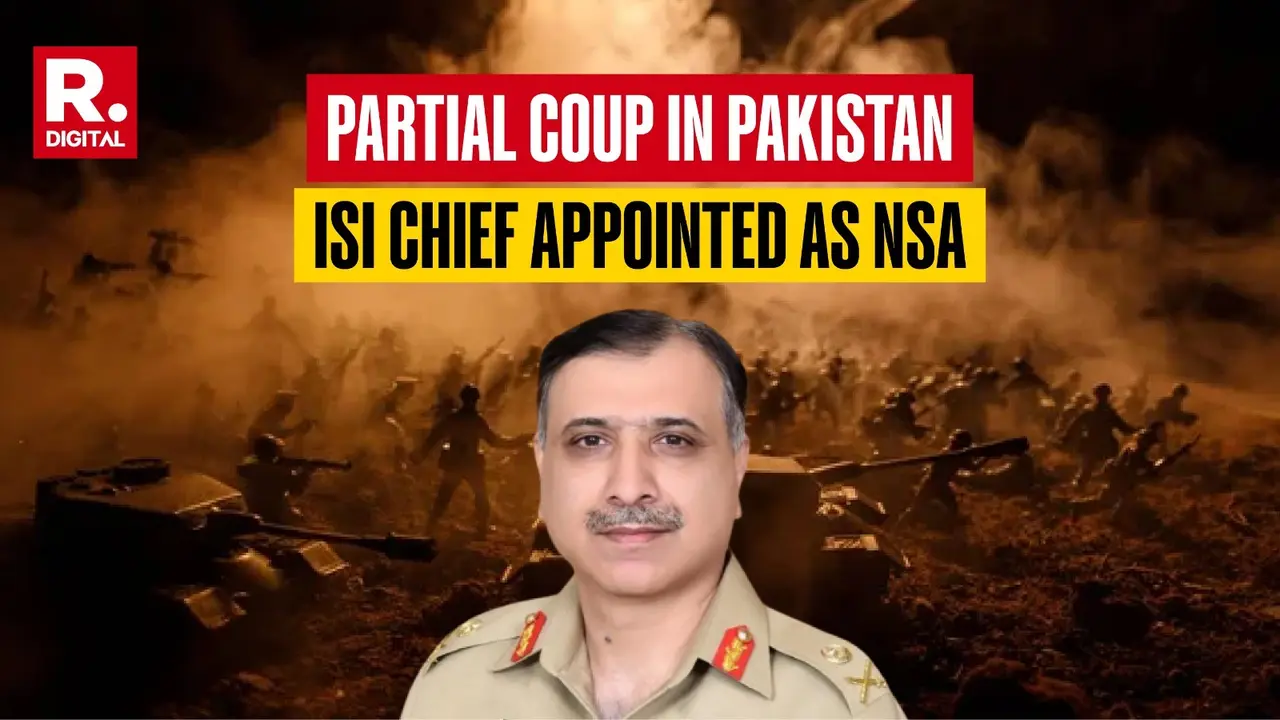Updated 1 May 2025 at 16:24 IST
Partial Coup in Pakistan? ISI Chief Becomes NSA, Army Takes Charge — Shehbaz Sidestepped
Shahbaz Sharif, missing from public view for days, has been reduced to a stooge. The ISI, Army & now the so-called "advisor" to the PM are running the show.
- World News
- 3 min read

New Delhi: In what sources are calling a “partial coup,” Pakistan ’s military-intelligence establishment has taken near-complete control of the country’s decision-making, sidelining the already-wobbly civilian government led by Prime Minister Shahbaz Sharif.
The sudden appointment of ISI chief Lieutenant General Mohammed Asim Malik as Pakistan’s National Security Advisor—a position left vacant since 2022—has sparked alarm across diplomatic circles, as it marks the latest and boldest move by the Army-ISI combine to formalize its grip on power.
Coming in the wake of the brutal terror attack in Pahalgam that claimed 26 innocent Indian lives, the timing of this development is anything but coincidental.
While Islamabad may try to wear a brave democratic mask, the truth is clear: the generals are in charge.
Advertisement
Prime Minister Shahbaz Sharif, missing from public view for days, has effectively been reduced to a ceremonial presence—his role hollowed out as key decisions, particularly those involving national security and responses to India, are now firmly in the hands of General Asim Munir and his ISI chief-turned-NSA.
Pakistan watchers say this isn’t just a backroom power shuffle—it’s the de facto military rule the country has long denied but consistently practiced. The ISI, Army, and now the so-called "advisor" to the Prime Minister are running the show, confirming what critics have long said: in Pakistan, democracy is only skin-deep—and the mask has finally slipped.
Advertisement
Pakistan No Stranger to Military Coups
Since its inception in 1947, Pakistan has been no stranger to military coups, with the armed forces playing a dominant role. The first major military coup took place in 1958 when General Ayub Khan seized power, marking the beginning of direct military rule. This set a precedent for repeated interventions by the military in civilian governance. General Yahya Khan followed in 1969, taking over from Ayub amid political unrest, only to preside over the disintegration of East Pakistan in 1971.
The most infamous coup came in 1977 when General Zia-ul-Haq overthrew Prime Minister Zulfikar Ali Bhutto, ushering in over a decade of military dictatorship marked by Islamisation and suppression of political opposition.
The cycle continued in 1999 when General Pervez Musharraf ousted Prime Minister Nawaz Sharif in a bloodless coup, citing misgovernance and national security threats. Musharraf remained in power until 2008, during which time Pakistan saw a blend of military rule and controlled democracy.
Even during civilian governments, the military—particularly the Army and ISI—has wielded significant behind-the-scenes influence over foreign policy, internal security, and strategic decision-making.
Published By : Surabhi Shaurya
Published On: 1 May 2025 at 16:24 IST
